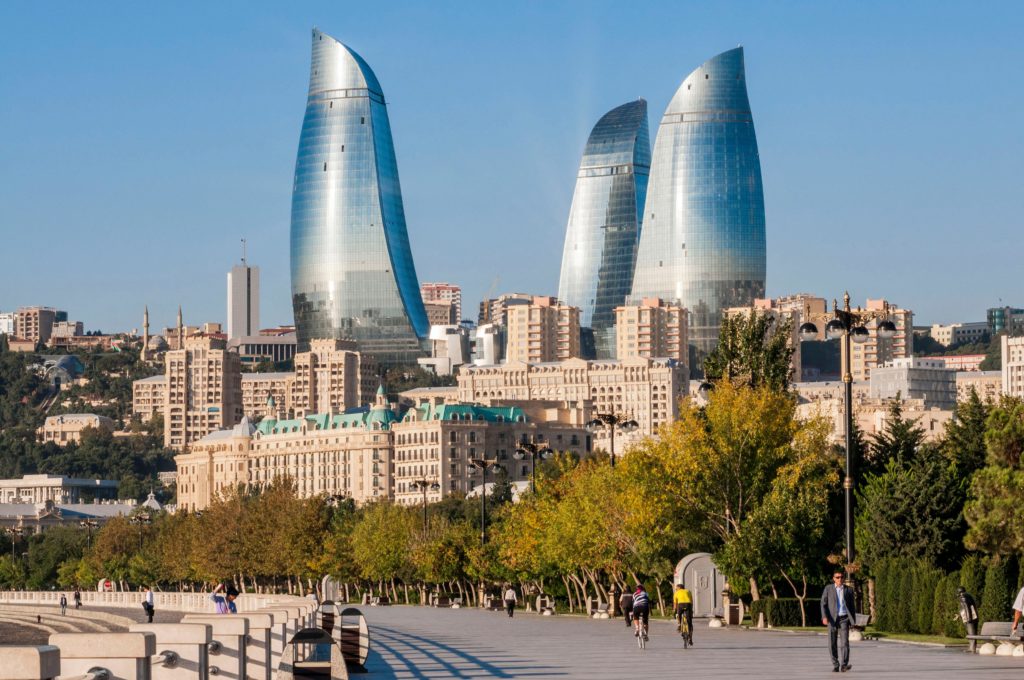BAKU
Azerbaijan’s economy has demonstrated growth in the third expansion since February last year, when the country’s economy, which relies heavily on oil and gas production, took a serious hit from a fall in global oil prices and restrictions imposed to stop the spread of COVID-19.
Gross Domestic Product (GDP) grew 2.7 percent in January-July this year from a year earlier backed by the growth in the non-oil sector. In January-June, the economy grew 2.1 percent.
The State Statistics Committee said that decline in the oil sector was 3.1 percent, while the non-oil sector grew by 5.3 percent. In nominal terms GDP reached 47.3 billion manats ($27.8 billion).
Azerbaijan reduced oil and gas condensate production by 4 percent year-on-year to 17.177 million tonnes in the first half of 2021. Natural gas production rose 5.1 percent to 20.355 billion cubic metres.
The government said in June that it might revise its GDP growth forecast to 4 percent from the current projection of 3.4 percent. The country’s GDP contracted by 4.3 percent in 2020.
A drop in global demand due to the pandemic hit oil markets hard, forcing oil-producing countries in the OPEC+ group, of which Azerbaijan is a member, to cut production to support global oil prices. This was a blow to Azerbaijan’s economy, which is traditionally reliant on oil and gas, while COVID-19 restrictions also hurt other industries, leading to a contraction in GDP last year.
The World Bank said in June that Azerbaijan’s economic growth should be supported by the stabilisation of oil prices as well as investment and reconstruction spending.
The November 2020 ceasefire agreement between Armenia and Azerbaijan alleviated geopolitical tensions in the region, although risks to stability remain elevated.
Still, economists’ predictions as to the pace of the recovery vary. While the World Bank predicts that Azerbaijan’s economy will grow 2.8 percent this year and 3.9 percent in 2022, the International Monetary Fund’s forecast is less upbeat, forecasting 2.3 percent growth in 2021, and slowing to 1.7 percent in 2022.
World Bank economists predict that in 2021, an acceleration of domestic demand will support economic growth, but cautions that this will be conditional on an improved health situation and increased public spending. Higher oil prices are forecast to narrow the fiscal deficit and help the current account return to surplus. Beyond 2021, without major structural reforms, the pace of the economic revival is likely to be moderate owing to a protracted recovery in oil output and anticipated fiscal tightening.
Meanwhile, the Asian Development Bank said in June that growth was forecast to return in 2021 at 1.9 percent and accelerate to 2.5 percent in 2022 as demand improves at home and abroad. As consumer confidence is restored and petroleum receipts become available for public investment, growth in the petroleum industry is expected to be outpaced by expansion in the rest of the economy, it said.

